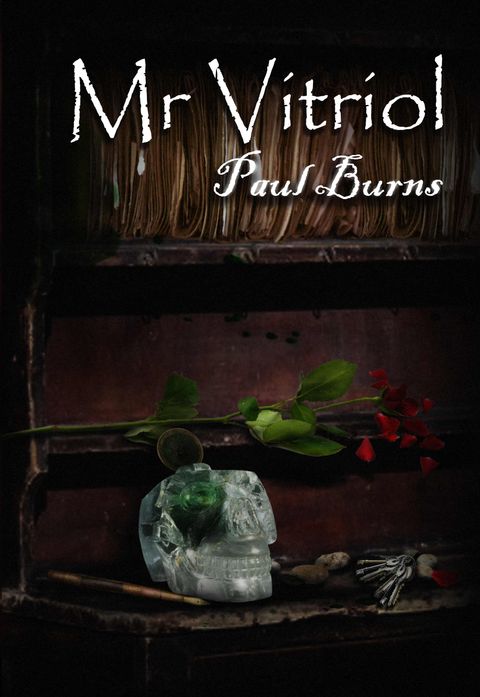Norman resented the media calling him Mr Vitriol because he saw his anonymous letters and as justified revenge.
In the new millennium, two men who never met write autobiographies that include experiences of severe bullying during National Service over forty years earlier. Norman Midlin almost drowned. NCOs raped Perry Gray. Perry responds to his violation and subsequent Army cover-up through vigilantism that includes poison-pen letters, planting bugs and evidence.
He writes his story in code shortly before committing suicide because exposure as Mr Vitriol is nigh. The media invented the name and whipped up public loathing for the anonymous correspondent.
Norman copes with his Army nightmares by working to the point of exhaustion. He becomes a cryptanalyst. Retirement resurrects his horrors. With the help of his wife he recovers until the police ask him to decrypt Perry’s pages.
Disturbed by Perry’s account and then by being widowed, Norman teeters between illusion, delusion and shrewd insights. He intersperses Perry’s chapters with his own story and comments on parallels and differences. Norman’s abhorrence of Mr Vitriol is tempered by Perry’s autobiography and the sense of the poison-penman's presence. The men develop a dialogue and a relationship that ranges from poignant to stormy.
In the new millennium, two men who never met write autobiographies that include experiences of severe bullying during National Service over forty years earlier. Norman Midlin almost drowned. NCOs raped Perry Gray. Perry responds to his violation and subsequent Army cover-up through vigilantism that includes poison-pen letters, planting bugs and evidence.
He writes his story in code shortly before committing suicide because exposure as Mr Vitriol is nigh. The media invented the name and whipped up public loathing for the anonymous correspondent.
Norman copes with his Army nightmares by working to the point of exhaustion. He becomes a cryptanalyst. Retirement resurrects his horrors. With the help of his wife he recovers until the police ask him to decrypt Perry’s pages.
Disturbed by Perry’s account and then by being widowed, Norman teeters between illusion, delusion and shrewd insights. He intersperses Perry’s chapters with his own story and comments on parallels and differences. Norman’s abhorrence of Mr Vitriol is tempered by Perry’s autobiography and the sense of the poison-penman's presence. The men develop a dialogue and a relationship that ranges from poignant to stormy.

